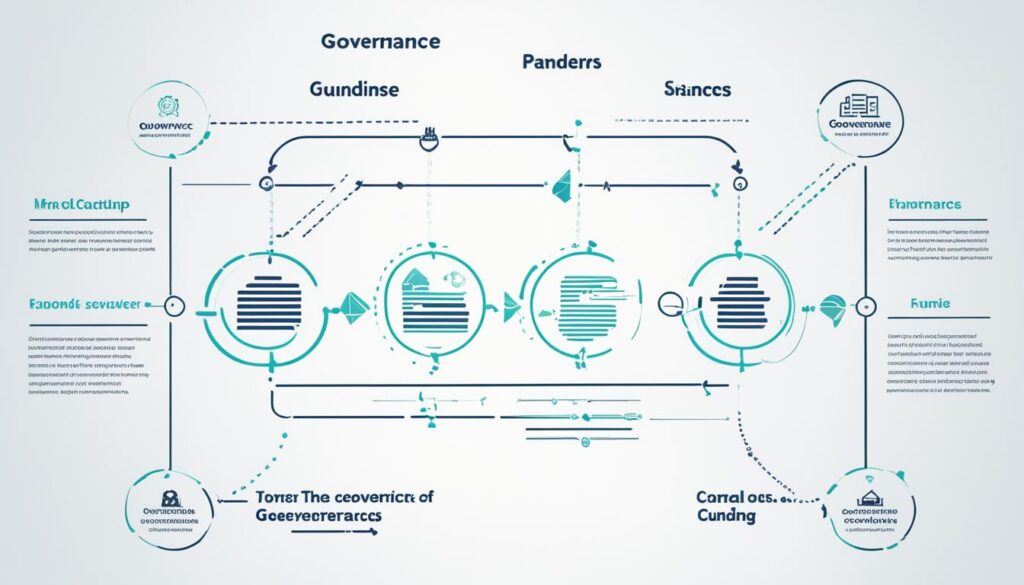In the world of startups and small businesses, venture capital (VC) funding is often touted as the holy grail of financing. While it can provide substantial capital and other valuable resources, the downside of VC funding is a topic that deserves careful consideration. As entrepreneurs explore their funding options, understanding the potential drawbacks of VC investment is crucial in determining whether it’s the right choice for their business.
Venture capital funding, with its promises of rapid growth and access to industry expertise, can be a tempting proposition. However, the reality is that VC investment comes with significant trade-offs that founders must weigh carefully. From the loss of ownership and control to the intense pressure for high growth, the downsides of VC funding can have a profound impact on the trajectory and culture of a startup or small business.
Key Takeaways
- Venture capital funding can result in a loss of ownership and control for founders.
- The stringent due diligence process and high growth expectations of VCs can be challenging.
- Founder’s equity can be significantly diluted over multiple rounds of VC funding.
- The time-consuming fundraising process can divert focus from core business operations.
- VC funding is a scarce resource with a highly competitive landscape.
Understanding Venture Capital Funding
Venture capital is a distinct form of private equity, where investors provide financing to small businesses and startups with high growth potential. These investors, known as venture capitalists, typically offer more than just monetary capital; they also bring their managerial expertise, industry connections, and technical know-how to help propel the companies they fund towards success.
Definition and Purpose of Venture Capital
Venture capital is a type of investment that targets early-stage or growing companies, particularly those with innovative ideas, disruptive technologies, or scalable business models. The purpose of venture capital is to identify and nurture promising ventures, providing them with the necessary resources to accelerate their growth and development.
Venture Capitalists: Key Players in the Ecosystem
The venture capital ecosystem consists of a diverse array of players, including investment banks, financial institutions, and wealthy individuals who pool their resources into venture capital firms. These venture capitalists search for compelling investment opportunities, conduct rigorous due diligence, and provide strategic guidance and operational support to the companies they choose to fund.
| Venture Capital Definition | Venture Capital Purpose | Venture Capitalists | Venture Capital Ecosystem |
|---|---|---|---|
| Private equity financing for small businesses and startups with high growth potential | Identify and nurture promising ventures, providing resources to accelerate growth and development | Investors who provide capital, expertise, and guidance to funded companies | Network of investment banks, financial institutions, and wealthy individuals who pool resources into VC firms |

Advantages of Venture Capital
Venture capital funding can provide startups and small businesses with a range of significant advantages that can propel their growth and success. One of the primary advantages is the access to substantial capital that venture capital firms can offer. Many entrepreneurs and business owners struggle to secure the necessary funding from traditional sources like bank loans or personal savings, but venture capital can bridge this gap.
Venture capital firms typically have access to large pools of capital, with the ability to provide funding ranging from $100,000 for early-stage startups to as much as $25 million for more mature companies. This influx of capital can be a game-changer, enabling businesses to invest in critical areas such as product development, marketing, and scaling their operations.
Expert Guidance and Business Acumen
Beyond the financial resources, venture capital funding also provides startups and small businesses with the opportunity to tap into the expert guidance and business acumen of the venture capitalists themselves. Experienced venture capitalists often have a deep understanding of the industry, market trends, and successful growth strategies, which they can share with the companies they invest in.
This expert guidance can be invaluable, helping entrepreneurs navigate the challenges of building and scaling a successful business. Venture capitalists can offer strategic advice, connect founders with industry experts, and provide valuable insights that can significantly improve the chances of long-term success.
Networking Opportunities
Partnering with a venture capital firm can also open up a wealth of networking opportunities for startups and small businesses. Venture capitalists have extensive networks within the entrepreneurial ecosystem, including other investors, industry leaders, and potential partners or customers. By gaining access to these networks, startups can expand their reach, explore new collaborations, and tap into a wider pool of resources to support their growth.
The ability to leverage the venture capitalist’s network can be a powerful asset, helping startups and small businesses to make valuable connections, access industry insights, and unlock new opportunities for their business.

| Advantage | Description |
|---|---|
| Access to Substantial Capital | Venture capital firms can provide funding ranging from $100,000 for early-stage startups to as much as $25 million for more mature companies, giving entrepreneurs the resources they need to grow their business. |
| Expert Guidance and Business Acumen | Experienced venture capitalists can offer strategic advice, connect founders with industry experts, and provide valuable insights to help startups and small businesses navigate the challenges of growth and success. |
| Networking Opportunities | Partnering with a venture capital firm can open up a wealth of networking opportunities, allowing startups to expand their reach, explore new collaborations, and tap into a wider pool of resources to support their growth. |
What is the downside of VC funding?
While venture capital funding can provide startups and small businesses with substantial capital, expert guidance, and valuable networking opportunities, it also comes with significant downsides that founders must carefully consider. One of the most significant drawbacks is the potential loss of ownership and control that founders may experience.
Loss of Ownership and Control
When a venture capital firm invests in a company, they often take an equity stake, which can dilute the founder’s ownership. Depending on the size of the investment, the venture capitalists may also have a significant say in the company’s direction and decision-making process, potentially limiting the founder’s autonomy.
Stringent Due Diligence Process
Securing venture capital funding typically involves a rigorous due diligence process, where venture capitalists thoroughly examine the company’s financials, operations, and growth potential. This can be time-consuming and intrusive, as founders may be required to provide extensive documentation and submit to detailed scrutiny.
High Growth Expectations
Venture capitalists invest with the expectation of generating substantial returns, often through a profitable exit event such as an acquisition or initial public offering (IPO). This means they will push the companies they fund to prioritize growth over other business objectives, potentially at the expense of long-term sustainability or the founder’s original vision.

Dilution of Founder’s Equity
One of the significant downsides of venture capital funding is the dilution of the founder’s equity in the company. When a startup or small business raises venture capital, the founder’s ownership percentage typically decreases as new shares are issued to the venture capitalists in exchange for their investment.
Over multiple rounds of equity dilution due to venture capital funding, a founder’s equity can be significantly reduced, potentially lowering their control and influence within the company. This can be a challenging trade-off for entrepreneurs who have poured their heart and soul into building their business from the ground up.
| Equity Ownership Before VC Funding | Equity Ownership After VC Funding |
|---|---|
| 80% | 40% |
| 100% | 60% |
| 90% | 55% |
The table above illustrates how founder’s equity can be diluted through successive rounds of venture capital funding. It’s crucial for entrepreneurs to carefully consider the long-term implications of equity dilution and how it may impact their control and decision-making power within the company.

Diversion of Focus
Seeking and securing venture capital funding can be a significant diversion of focus from the core operations of a startup or small business. The time-consuming fundraising process, which includes networking, pitching, and negotiating with potential investors, can consume a substantial amount of the founder’s time and attention, pulling them away from the day-to-day management of the company.
Navigating the complex world of venture capital requires a significant investment of time and resources, often at the expense of the business’s primary objectives. Founders must carefully balance their efforts between securing funding and driving the growth and development of their enterprise, which can lead to a fragmentation of their focus and a potential loss of momentum in the company’s operations.
| Impact of Venture Capital Funding | Diversion of Focus | Time-Consuming Fundraising |
|---|---|---|
| Startup or small business | Substantial amount of founder’s time and attention | Networking, pitching, and negotiating with potential investors |
| Core business operations | Pulled away from day-to-day management | Complex world of venture capital |
| Founder’s time and resources | Fragmentation of focus | Loss of momentum in company’s operations |
The diversion of focus and the time-consuming nature of the fundraising process can have a significant impact on a startup or small business, potentially slowing its growth and development. Founders must carefully weigh the benefits of venture capital funding against the potential drawbacks, ensuring that they maintain a clear and unwavering focus on their company’s core objectives and long-term success.

Scarcity of VC Funding
Securing venture capital funding can be a significant challenge for startups and small businesses in today’s highly competitive landscape. The scarce nature of venture capital resources means that even promising companies may struggle to obtain the necessary funding to fuel their growth. According to the National Venture Capital Association, in 2022 there were approximately 16,000 venture capital deals in the United States, but only about 11,000 of these were first-time funding recipients, indicating the difficulties faced by entrepreneurs seeking venture capital for the first time.
Highly Competitive Landscape
The competitive VC landscape is a significant obstacle for startups and small businesses seeking venture capital funding. With a limited number of venture capitalists and a high demand for their investment, companies must stand out from a crowded field of applicants to secure the necessary funding. This competitive environment can make it challenging for entrepreneurs to gain the attention of potential investors and demonstrate the unique value proposition of their business.
Rigorous Screening Criteria
Venture capitalists employ rigorous screening criteria to evaluate potential investment opportunities, making it difficult for startups and small businesses to meet their stringent requirements. Venture capitalists typically look for companies with high growth potential, experienced management teams, and clear paths to profitability. This VC screening criteria can be daunting for entrepreneurs, who must not only have a compelling business idea but also exhibit the characteristics and capabilities that venture capitalists seek.
| Venture Capital Statistic | Value |
|---|---|
| Venture capital deals in the U.S. (2022) | 16,000 |
| First-time funding recipients (2022) | 11,000 |
The scarcity of venture capital and the competitive VC landscape pose significant challenges for startups and small businesses seeking to obtain the funding they need to grow and succeed. Navigating the rigorous screening criteria set by venture capitalists requires entrepreneurs to have a well-developed business plan, a compelling value proposition, and the ability to demonstrate their company’s potential for rapid growth and profitability.

Cost of Equity
While venture capital funding may seem like a relatively inexpensive way to raise capital compared to traditional debt financing, the true
cost of equity
can be significant in the long run. When a startup or small business raises
, it is exchanging a portion of its equity for the investment, which means the founders are giving up a share of the company’s future value and profits.
Potentially Expensive in the Long Run
This equity financing can be more costly than it initially appears, as the venture capitalists will expect a significant return on their investment, typically in the range of 20-30% or more. Over time, as the company grows and the valuation increases, the long-term cost of venture capital can become quite high, potentially surpassing the interest rates associated with traditional debt financing. Founders must carefully weigh the benefits of venture capital against the long-term impact on their ownership and potential future earnings.

Formalized Governance Structure
When startups or small businesses accept venture capital funding, they are often required to establish a more formalized governance structure, including the creation of a board of directors. This board typically includes representatives from the venture capital firm, as well as independent directors, who will oversee the company’s operations and provide guidance on strategic decisions.
Board of Directors and Reporting Requirements
The board of directors formed as a result of venture capital investment plays a crucial role in shaping the company’s future. These directors, including those appointed by the venture capital firm, will have a significant say in the company’s direction and decision-making process, potentially limiting the founder’s autonomy. Additionally, startups receiving venture capital funding will often be subject to stricter reporting requirements, further formalizing the company’s governance structure.
The formalized governance structure and presence of a board of directors with venture capital representation can have a substantial impact on the company’s structure and the way it operates. Founders must carefully consider these changes and their implications when deciding whether to accept venture capital funding.

Pressure to Achieve Rapid Growth
One of the significant downsides of venture capital funding is the intense pressure it places on startups and small businesses to achieve rapid growth. Venture capitalists invest with the expectation of generating substantial returns, often through a profitable exit event such as an acquisition or initial public offering (IPO). This means they will push the companies they fund to prioritize growth over other business objectives, potentially at the expense of long-term sustainability or the founder’s original vision.
The high growth expectations set by venture capitalists can lead to a relentless focus on achieving rapid expansion, even if it means sacrificing profitability, customer satisfaction, or other important metrics. Startups that receive venture capital funding are often expected to achieve a significant return on investment within a relatively short period, creating a sense of urgency and pressure to scale quickly.
This pressure for rapid growth can distort the priorities of a startup, leading founders to make decisions that may not be in the best long-term interests of the business. Ultimately, the venture capital investment goals of achieving outsized returns can create a challenging environment for startups, where the pursuit of growth becomes the primary objective, potentially at the expense of sustainable, balanced development.
Conclusion
In conclusion, while venture capital funding can provide startups and small businesses with access to substantial capital, expert guidance, and valuable networking opportunities, it also comes with significant downsides that entrepreneurs must carefully consider. The loss of ownership and control, stringent due diligence process, high growth expectations, dilution of founder’s equity, diversion of focus, scarcity of VC funding, cost of equity, formalized governance structure, and pressure to achieve rapid growth are all potential drawbacks that can outweigh the benefits for some companies.
When evaluating the pros and cons of venture capital funding, startup founders should weigh the potential advantages against the risks and challenges outlined in this article. While VC funding can provide the necessary resources for rapid growth, the trade-offs in terms of control, equity, and long-term sustainability may not align with the founder’s vision or the company’s best interests. Considering alternative financing options, such as venture debt or private equity, may be a more suitable choice for some startups, depending on their specific needs and goals.
Ultimately, the decision to pursue venture capital funding is a complex one that requires careful analysis and a clear understanding of the potential downsides of VC funding. By carefully weighing the pros and cons, startup founders can make an informed decision that aligns with their long-term objectives and the best interests of their business.
